“My ultimate goal is to be happy, by breaking with my destiny and defeating any violence.”
Paloma Rivera, Tianguis Mezcalero
The eldest member of my family is my great-aunt Petra. At 87, she doesn’t miss a family gathering and continues to cook for five people or more almost everyday. My dad loves her albóndigas, my mom craves her rice and my siblings beg for her almendrado recipe. I realized, a bit late in life, what a great cook she is, and how every relative has a story to tell that involves at least one of her dishes. She was diagnosed with cancer a few years ago and she had to slow down however she hasn’t stopped enjoying life. A few months ago I thought, what a great gift it would be for her to help write down her recipes. After a few failed attempts, we finally arranged a day for chatting and cooking. I had everything planned as for what recipes to ask for and what to cook but when I sat down with her, I realized I had never heard her full life story.
She was the youngest of three girls who were all separated after their mother died. Tia Petra went on to live with her aunts while her siblings remained with her dad and step mom. She learned to cook by necessity at the age of 6 and did it by watching some of her aunts in the kitchen. “I’ve never written a recipe in my life, everything is here” she said as she touched her head. I had always known a Tia Petra who was a strong character without filters and a very straightforward person who faced many hardships throughout her life. But she learned to see the silver lining of every unfortunate event. After a couple of hours of listening carefully, I realized how many stories within our families remain untold, especially the womens.
In the world we currently live in, men still hold the majority of power so imagine how it was when Petra was a young woman back in the 50’s, in Mexico? Women were not used to speaking up or choosing their own path, they were threatened by society if the expectations weren’t fulfilled i.e. getting married and having children. Tia Petra, in the midst of much loss and suffering, somehow managed to live her life freely.
Every year, on March 8th (8M) on International Women’s Day, we take over the streets here in Mexico to demand gender equality, for women’s rights to choose, to own our body and decisions, to protest the ongoing violence against women (10 femicides a day!), and to speak up and make our opinion heard and respected. This year was my first time marching on 8M. I walked for two hours along with a coworker and women I met that same day. I chanted along with them and watched others holding their signs with tears in their eyes, protesting with courage and pain. I feel like for those of us living in CDMX, this movement has brought us together and created a meaningful sorority we didn’t have before. Every year, we take a step toward making ourselves and our stories visible and the world of mezcal is no exception. Also on March 8th, women in the mezcal world in Mexico presented a communal effort in which they shared their experiences in a book called “Miradas femeninas desde el mezcal”.
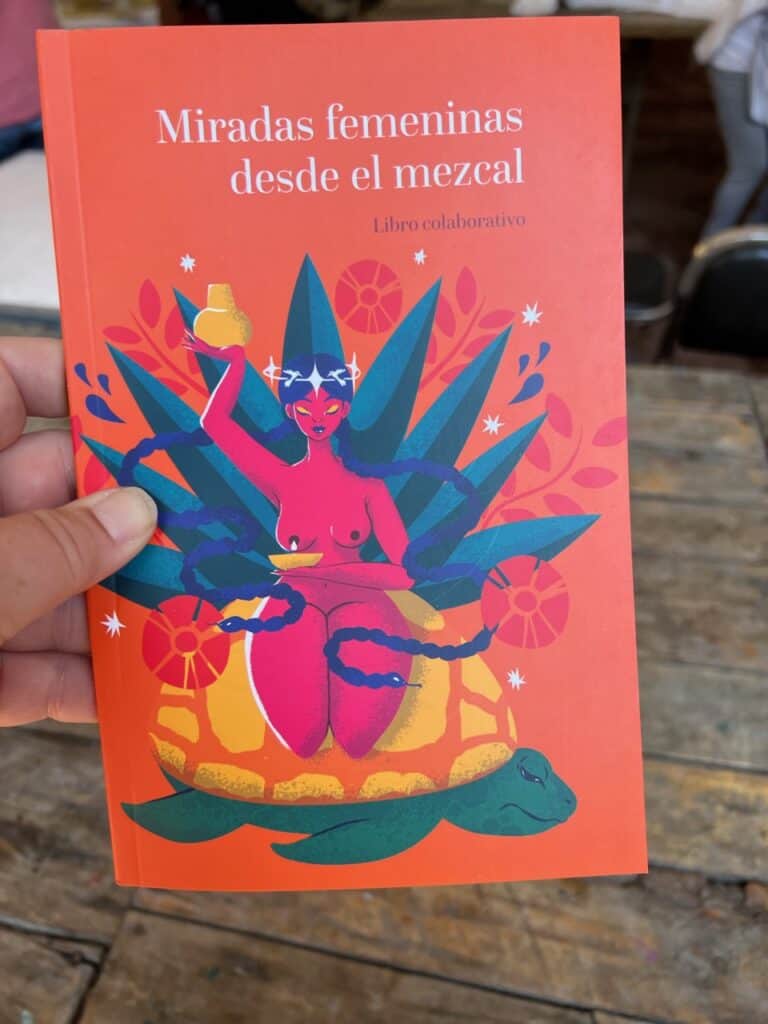
Miradas femininas desde el mezcal against the backdrop of feminism in Mexico
This book shows there is another narrative emerging with the views and experiences of women making their way in a man’s world. It is a collection of personal essays centered around their journeys with mezcal and their contributions in making the spirit. There are stories from mezcal producers, distributors and owners of mezcalerías who raised their hands when nobody asked them to and created their own projects in the world of agave spirits. These women are breaking the glass ceiling and making sure it gets better for the next generation of women to become whoever they want to be.
My Tia Petra, my mom and part of my generation were raised with the idea that women have to bear children. Feminism, as I perceive it, enables women to choose their own path on their own terms, and to see themselves as human beings whose life and decisions are not necessarily linked to maternity. I had always thought that women in rural areas had fewer possibilities to change a situation of unwanted pregnancy, abuse or violence because of machismo being so entrenched in our society. However, this perspective lacks empathy and it is incomplete because it doesn’t take into consideration the circumstances in which every woman lives. The march in CDMX gets most of the media attention and the debate centers on talking about how the patriarchy must fall. That is actually a good start but how much visibility are we giving to those living outside the main cities? I don’t see many conversations focusing on how the lack of resources keep more women from becoming self conscious when they are denied land ownership and basic services such as reliable health care and running water. According to The Hunger Project, women are responsible for carrying about 80 percent of the water from the collection point to their homes.
The result of a simplistic view is putting the blame on women for “not knowing better” to fight abuse or to reduce the inequality gap. I didn’t realize up until reading this book, that the reason feminism is experienced very differently in rural areas is exactly because of the context and worldviews of its communities.
The book begins with an eloquent and knowledgeable introduction by Graciela Angeles from Real Minero in which she describes the evolution of mezcal in Oaxaca emphasizing her family experience in the business. In a very personal voice, she explains she had two choices for her life path, to become a cocinera or a mezcalera. She ended up taking the path that was not planned for her, the latter, and became the head of her family’s mezcal business. “You do not decide, it just happens” says Angeles. And it reminded me of Tia Petra, she didn’t choose to be a cocinera, it just happened but she embraced it as part of her destiny.
Both of these occupations, cocinera and mezcalera, are linked to the “nature” of being a woman. But as Angeles explains, the latter is a space “where people speak less and drink more, it is less emotional and more physically intense” but one can still own her “nature” even on the path of the mezcalera. Culturally in Mexico, women are the caretakers in families, cooking and feeding everyone along with all of the other required nurturing. With mezcaleras I can see that same caretaker role Angeles writes about, in this case as guardians of mezcal. In this sense, our “nature” allows us to oversee the development of the maguey during its early stages of growth. The gender division of labor that I discussed in a previous story takes a different meaning when Angeles explains the complexity of being a woman and creating community among younger and older women in order to preserve tradition. She says one way in which women share their knowledge among other female members of the family is through household chores. And I think, how is this feminist? The response is because that is a way to learn about life, and information can make us stronger. “We don’t run from danger, we learn to deal with it in one way or another. The palenque is a workplace where women are continuously challenged, rejected, censored, even endangered, but we keep going, learning from it until everyone else gets used to our presence.”
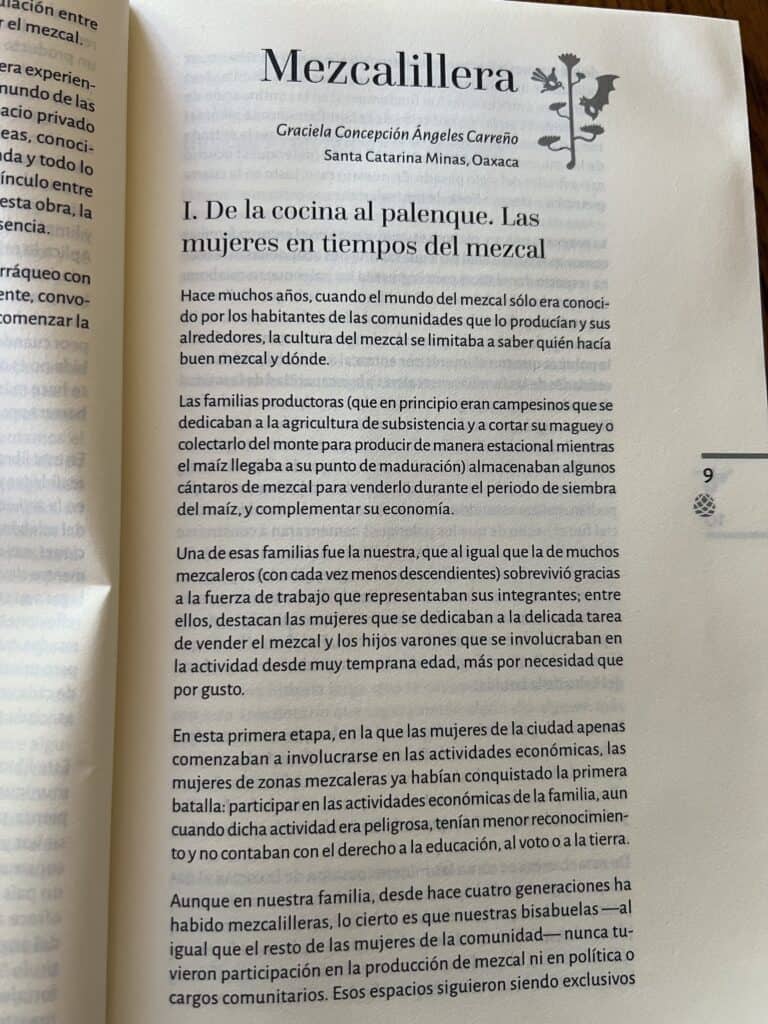
Nature, nurture and family
Angeles’ words in this book made me think more deeply about this notion. This type of sorority that we lacked in the city, has always existed in her community in Oaxaca. “Different from men, women cure each other, they share herbs, seeds, secrets and recipes. They share their sorrows with each other and this catharsis keeps them from using alcohol to avoid their problems”. She knew that becoming a mezcalera would mean having to be self aware of the effects of mezcal to avoid drunkenness. Erika Meneses, director of Aguerrido, knows this well. She writes of how when she began coordinating a group of men for the brand, not only did she have to deal with the machismo of the men, she also had to deal with the women who thought mezcal a vice and that nothing good came out of selling it.
While many things have changed for women, one thing has remained – we are expected to have children, still seen as our main purpose in life. For Cristina Rendón, a mezcalera from Guerrero, mezcal is the fruit of the maguey the same way children are the fruit of their parents and therefore her caretaking is every bit as maternal as traditional motherhood. The Mesoamerican cultures believed Father Heaven and Mother earth were in charge of creating human life. Mixtec people believe that the earth is the uterus and the rain is the semen that fertilizes it, creating the plant of corn as result. I think our perception of motherhood is divided between the patriarchal view that Catholic church has imposed where women have a secondary role and the prehispanic concept in which Mother Earth is the most important element in the cosmos.
Rendón as well as Sandra Ortiz from InSitu, recognize that the true essence and heart of mezcal goes beyond a commercial transaction. For Rendon it has to do with its medicinal purposes and the cultural importance that is reflected in actions like offering mezcal in exchange for a good harvest season. For Ortiz, it has to do with who tells the story of mezcal and his (or her) depth of knowledge. She calls out people that pretend to know it all but are improvising in every step of the way.
Sósima Aguilar, from Fanekantsini, writes about the role of a woman in the palenque or taberna which is usually focused on preparing food and keeping track of the mezcal production. These duties are not minor and it is important to recognize the value they add to the entire process. The abuelas, in their wisdom, used mezcal for medicinal purposes, to heal the physical pain but also the angst that daily life brings. For Aguilar one of the best moments for reflection is sitting under a tree drinking mezcal and thinking of her legacy to the mezcal making process. She explains that “daughters, just like flowers, fill the heart, heal the spirit and teach us how to be mothers”. When we talk about mezcal, we talk about biocultural heritage and only those who have lived through it can romanticize it as a way to explain their heritage and therefore, pass it on. As Sósima and Graciela indicate in their own words, mezcal making is a family matter where all is done by teamwork, and family includes either your blood or the one you have chosen.
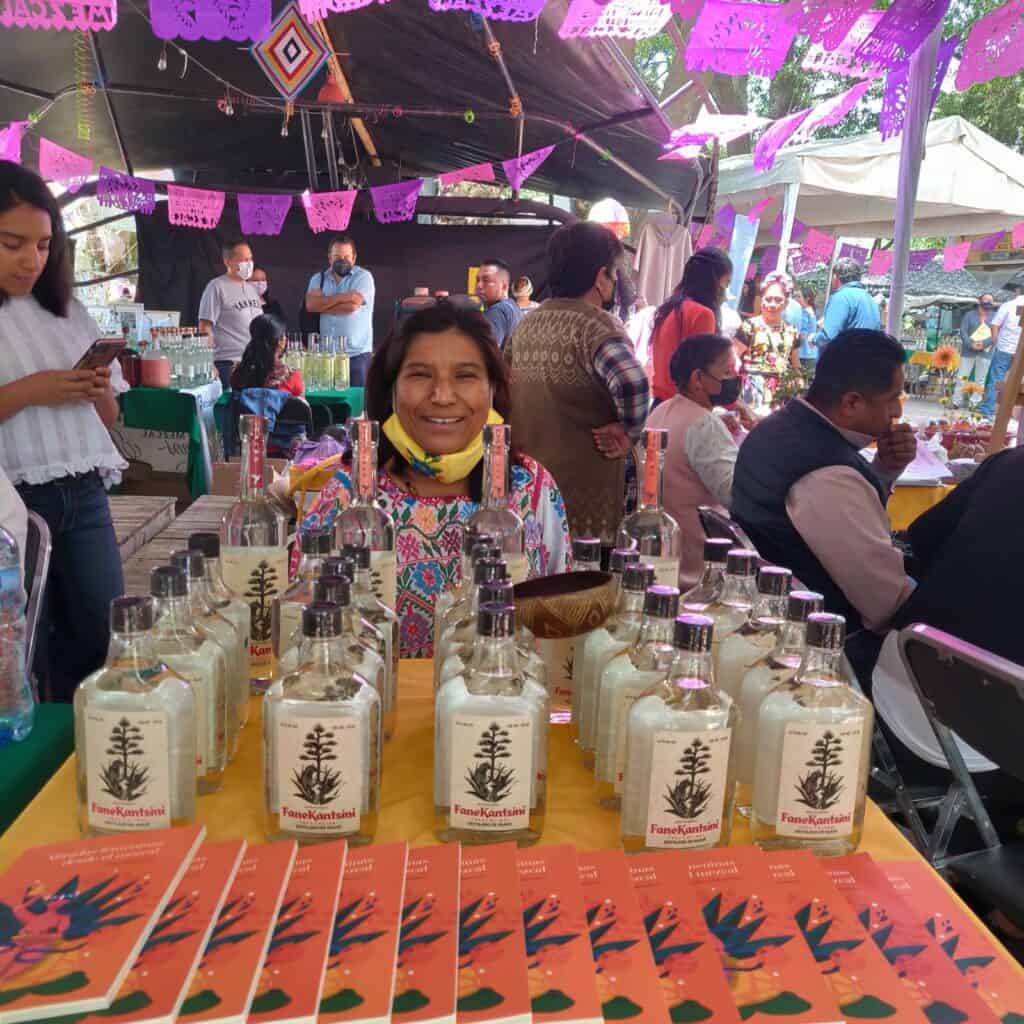
The idea of working as a family is not only present within the work of a mezcal producer, but also, as a marketer and distributor. A relationship based in trust is required to be part of the supply chain. Paloma Rivera, co-founder of Tianguis Mezcalero, has been able to know Mexico better thanks to these families who have welcomed her at their homes and shared their tradition with her. As a mezcal distributor, she writes how she built relationships and created a community among producers that later became family. In a similar note, María Elena Carvajal, co-owner of Mis Mezcales, shared her struggle at creating space for her business in an industry dominated by men. Carvajal writes about how difficult it is being a female entrepreneur as she saw herself rejected at many attempts of reaching out to producers. As she grew her business and established long term relationships with mezcaleros and mezcaleras, she still dealt with an impostor syndrome of not being good enough for the business. In some way, I think she identified with this one mezcalera who made mezcal together with her husband but the bottles only had his name on it. It wasn’t until one person asked the reason that she decided to create her own batches.
A gathering of mezcaleras
This past June in Mexico City, the first Encuentro de Maestras Mezcaleras by Maestros del Mezcal took place at Huerto Roma verde. Unlike the Encuentro de Maestros Mezcaleros, this only covered about half of the space which was shared as an exhibit of local jewelry makers. There were existing brands already positioned in the market with bottles of destilados made by the wives of maestros mezcaleros. Others brought labels that were produced by men but were being represented by women. And others, mostly from the region of Legoche, were projects of women who decided to step up and create their own spirits. I was able to chat with a few maestras and listen briefly to their stories. Gloria García from Legoche was only 6 years old when she started helping her mom empty the fermenting vats. She would fill buckets with bagazo and pass them to her mom who would put it inside the posturas (still). She liked it and kept working in the mezcal family business,so much so that she is the first one in her family who studied a professional career and will dedicate her full time to mezcal.
Bertha Sánchez’s daughter-in-law said her favorite activity within the whole process is to cut and shave magueyes. She loves going up in the mountain to look out for magueyes, there is no other activity she enjoys as much. Even though it was refreshing to see a space dedicated to only mezcaleras, I look forward to a time where we won’t have to split a trade show between male and female producers but where there is a forum where everyone can participate in equal conditions and receive the same recognition of their craft.
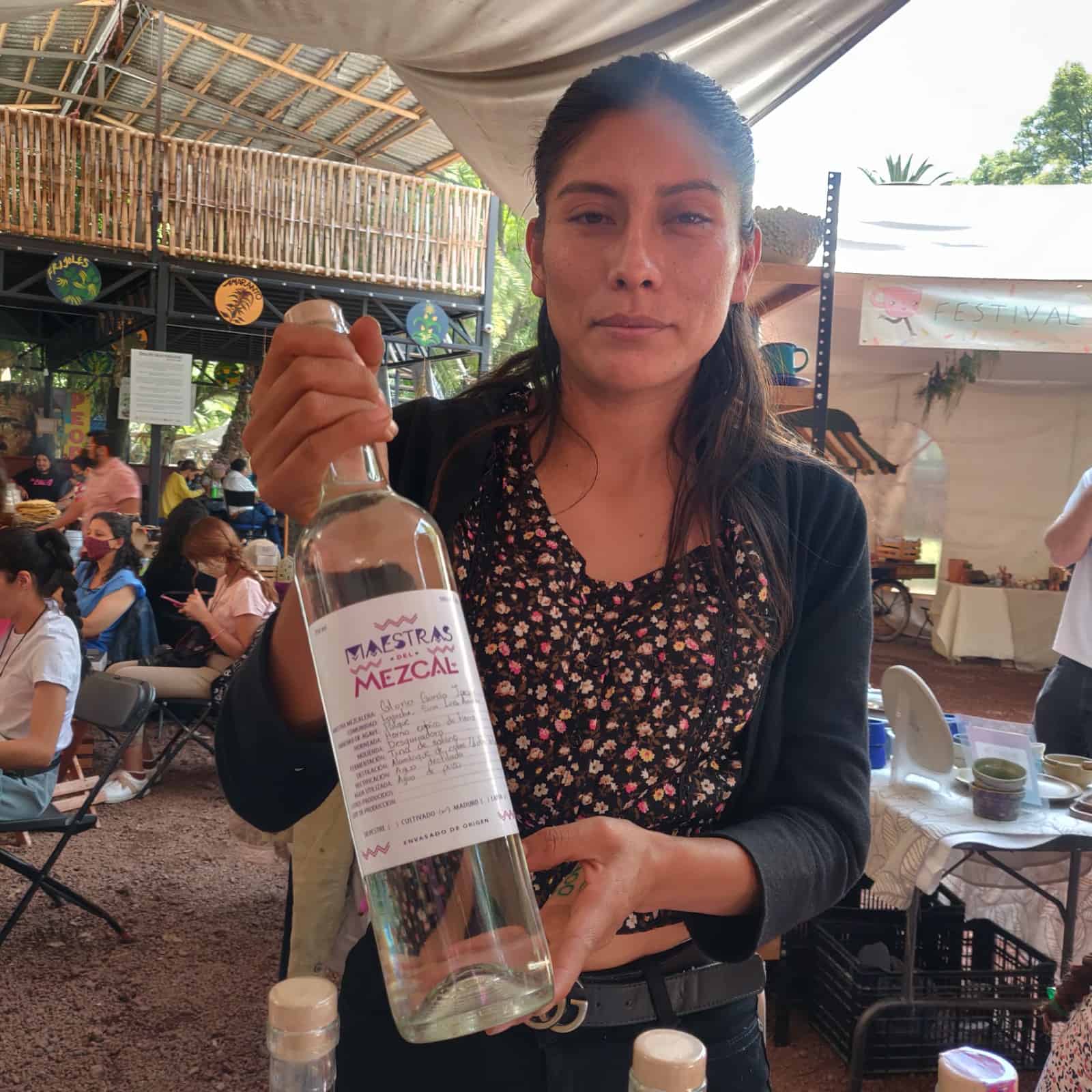
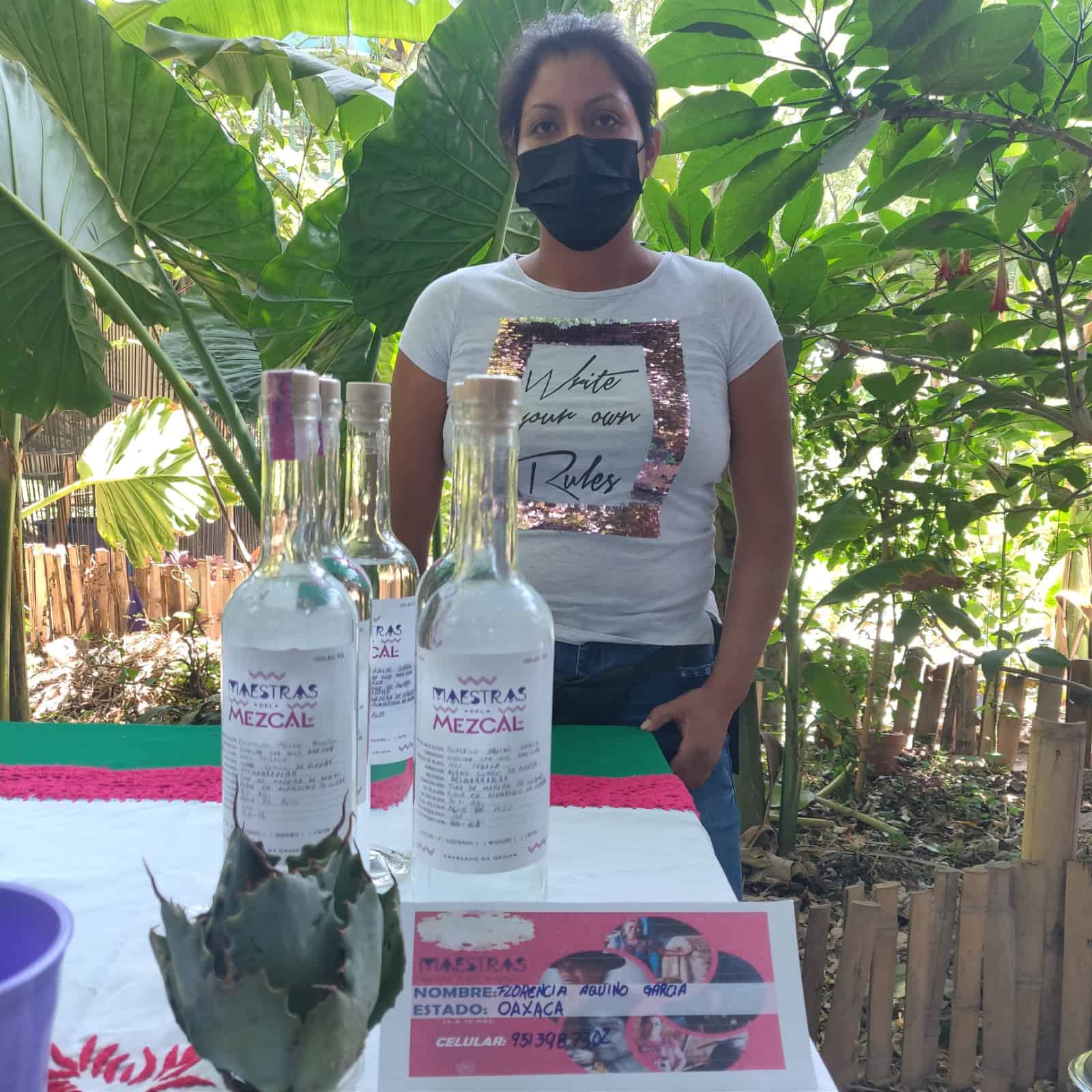
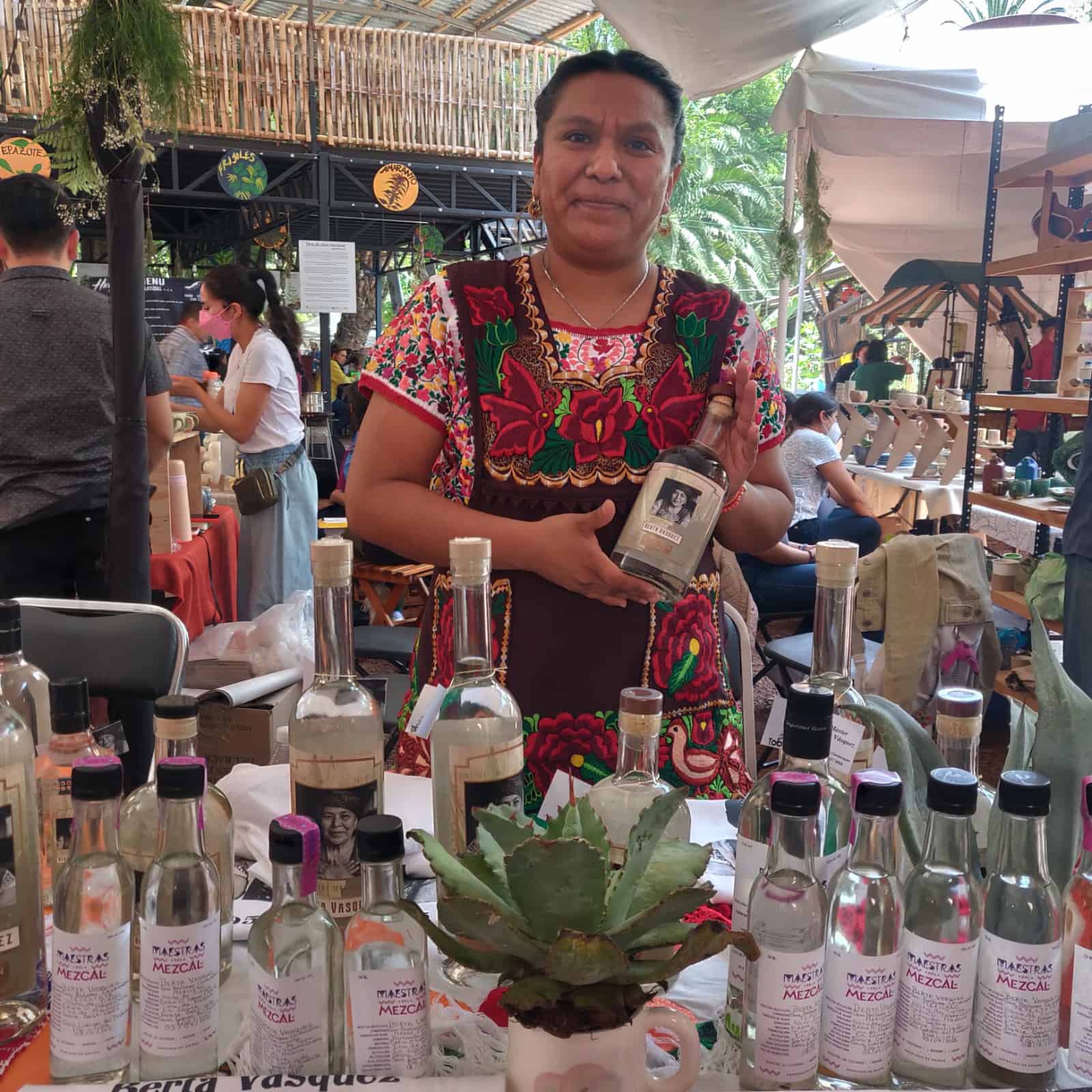
After reading and listening to all these stories, I understand how we all need validation of some sort. We need to know that we are capable of doing things we didn’t imagine before and for women, it matters when we hear stories we can relate to. Self awareness comes with some guidance and support. Ángeles has spoken in different moments about her father’s support to lead the project at Real Minero. We all need motivation and women specifically, need to feel safe and build the confidence to raise our hand and voices and ask for what we want. If we are surrounded by physical and emotional violence, it is more difficult to do that. Unlike Ángeles and Sósima, the nuclear family of Tía Petra was broken as well as her sense of belonging, but she found a purpose through the cooking she inherited from her aunts. A cookbook is my way of giving Petra a voice that can transcend through generations, just the way that a group of women have put their testimony on paper. For me, I want my aunt Petra’s stories and recipes to be part of our family inheritance.
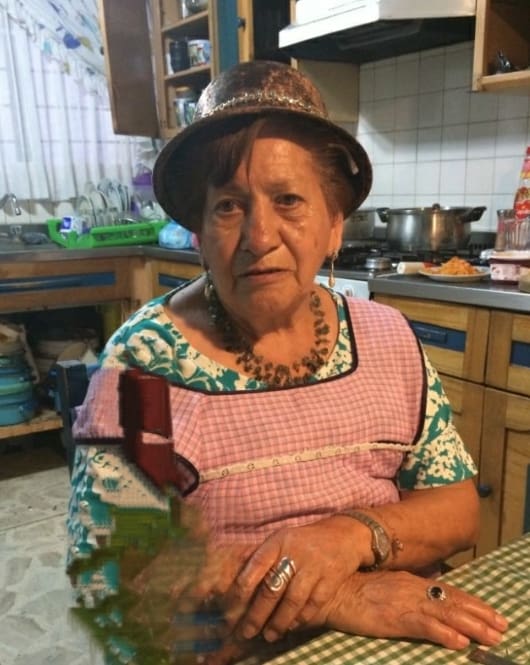
Miradas femininas desde el mezcal is currently only available in Spanish in Mexico.

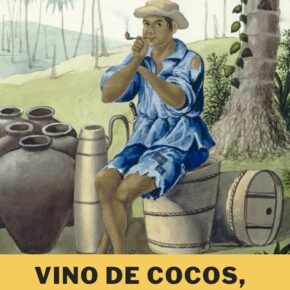
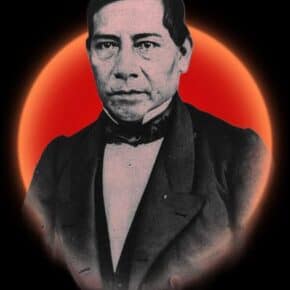
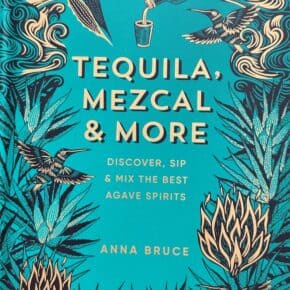
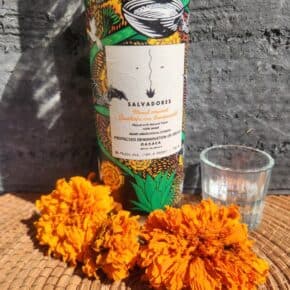







Leave a Comment